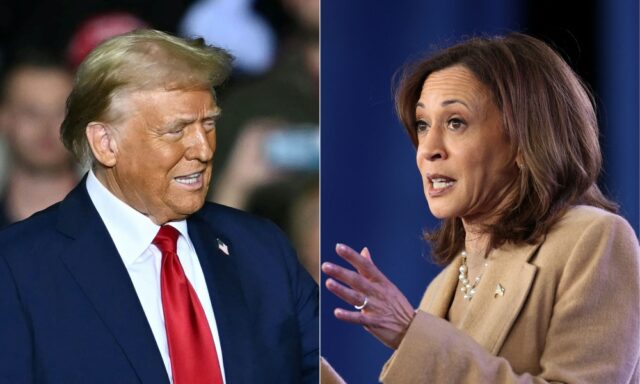- Paramount settles with Trump over 60 Minutes interview on CBS
- No statement of apology or regret in settlement
- Trump filed US$10 billion (RM42 billion) lawsuit against CBS in October over Kamala Harris interview
NEW YORK, July 2 — CBS parent company Paramount today settled a lawsuit filed by US President Donald Trump over an interview broadcast in October, the latest concession by a media company to a president who has targeted outlets over what he describes as false or misleading coverage.
Paramount said it would pay US$16 million to settle the suit with the money allocated to Trump’s future presidential library, and not paid to Trump “directly or indirectly.”
“The settlement does not include a statement of apology or regret,” the company statement added.
Trump filed a US$10-billion lawsuit against CBS in October, alleging the network deceptively edited an interview that aired on its 60 Minutes news programme with then-vice president and presidential candidate Kamala Harris to “tip the scales in favour of the Democratic Party” in the election. In an amended complaint filed in February, Trump bumped his claim for damages to US$20 billion.
CBS aired two versions of the Harris interview in which she appears to give different answers to the same question about the Israel-Hamas war, according to the lawsuit filed in federal court in Texas.
CBS previously said the lawsuit was “completely without merit” and had asked a judge to dismiss the case.
The White House did not immediately respond to a Reuters’ request for comment. Edward A Paltzik, a lawyer representing Trump in the civil suit, could not be immediately reached for comment.
Paramount said it also agreed that 60 Minutes would release transcripts of interviews with future US presidential candidates after they aired, subject to redactions as required for legal or national security concerns.
A spokesperson for Paramount Chair Shari Redstone was unavailable for comment.
The case entered mediation in April.
Trump alleged CBS’s editing of the interview violated the Texas Deceptive Trade Practices-Consumer Protection Act, which makes it illegal to use false, misleading or deceptive acts in commerce.
Media advocacy groups said Trump’s novel use of such laws against news outlets could be a way of circumventing legal protections for the press, which can only be held liable for defamation against public figures if they say something they knew or should have known was false.
The settlement comes as Paramount prepares for an US$8.4-billion merger with Skydance Media, which will require approval from the US Federal Communications Commission.
On the campaign trail last year, Trump threatened to revoke CBS’ broadcasting license if elected.
He has repeatedly lashed out against the news media, often casting unfavourable coverage as “fake news.”
The Paramount settlement follows a decision by Walt Disney-owned ABC News to settle a defamation case brought by Trump. As part of that settlement, which was made public on December 14, the network donated US$15 million to Trump’s presidential library and publicly apologised for comments by anchor George Stephanopoulos, who inaccurately said Trump had been found liable for rape.
It also follows a second settlement, by Facebook and Instagram parent company Meta Platforms, which on January 29 said it had agreed to pay about US$25 million to settle a lawsuit by Trump over the company’s suspension of his accounts after the January 6, 2021, attack at the US Capitol.
Trump has vowed to pursue more claims against the media.
On December 17, he filed a lawsuit against the Des Moines Register newspaper and its former top pollster over its poll published on November 2 that showed Harris leading Trump by three percentage points in Iowa.
The lawsuit seeks unspecified damages and an order barring the Des Moines Register from engaging in “ongoing deceptive and misleading acts and practices” related to polling.
A Des Moines Register representative said the organisation stands by its reporting and that the lawsuit was without merit.
On June 30 Trump dropped the federal lawsuit and refiled it in an Iowa state court. — Reuters











